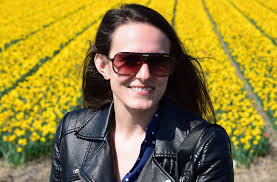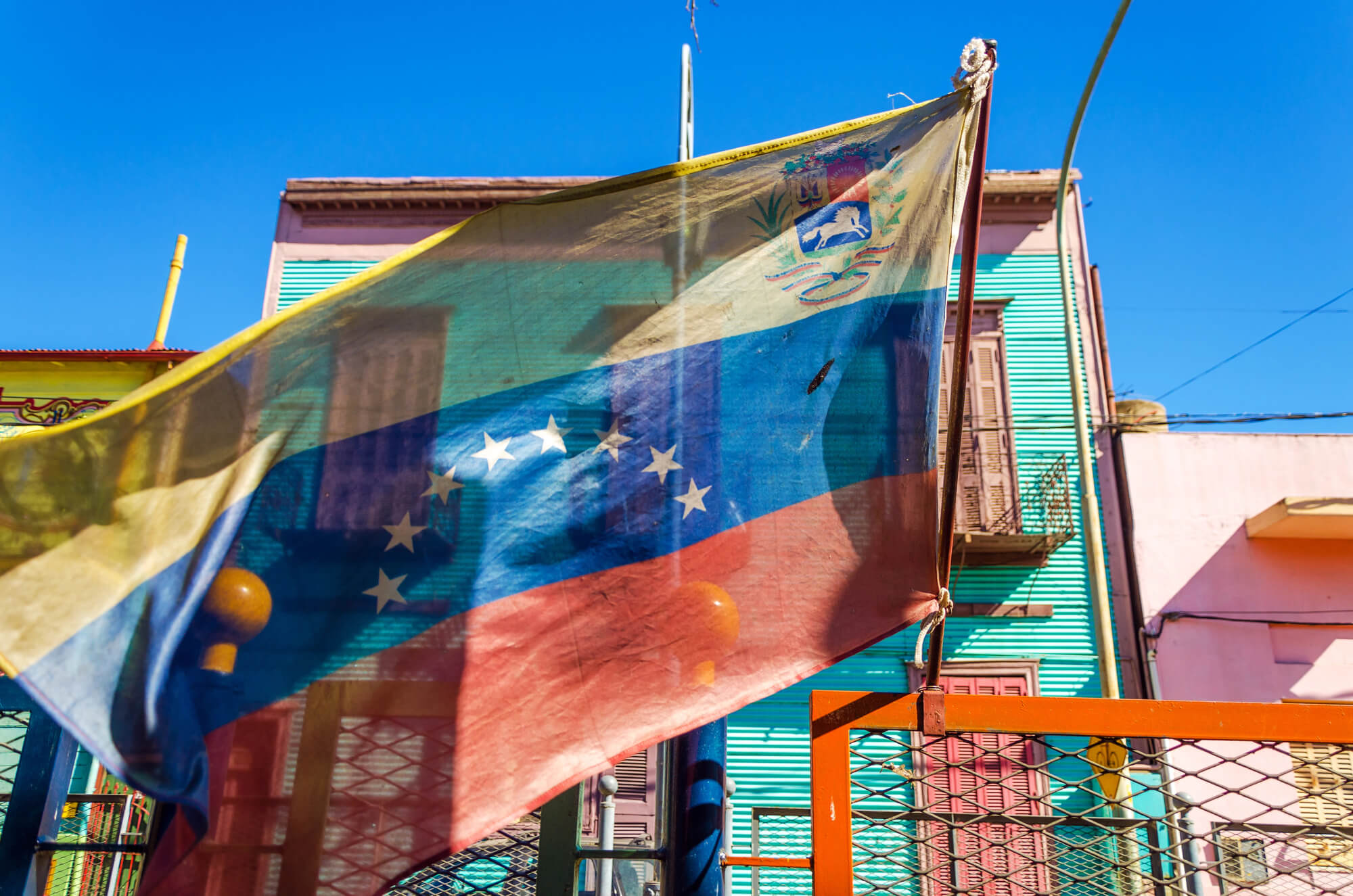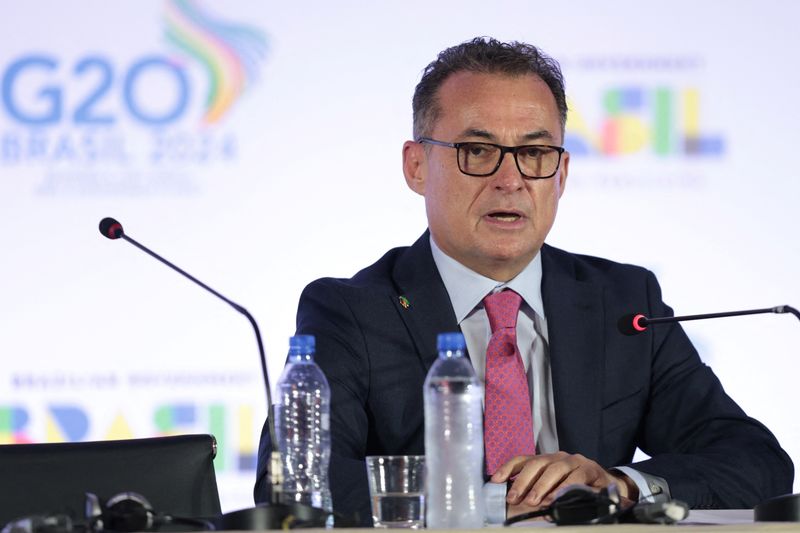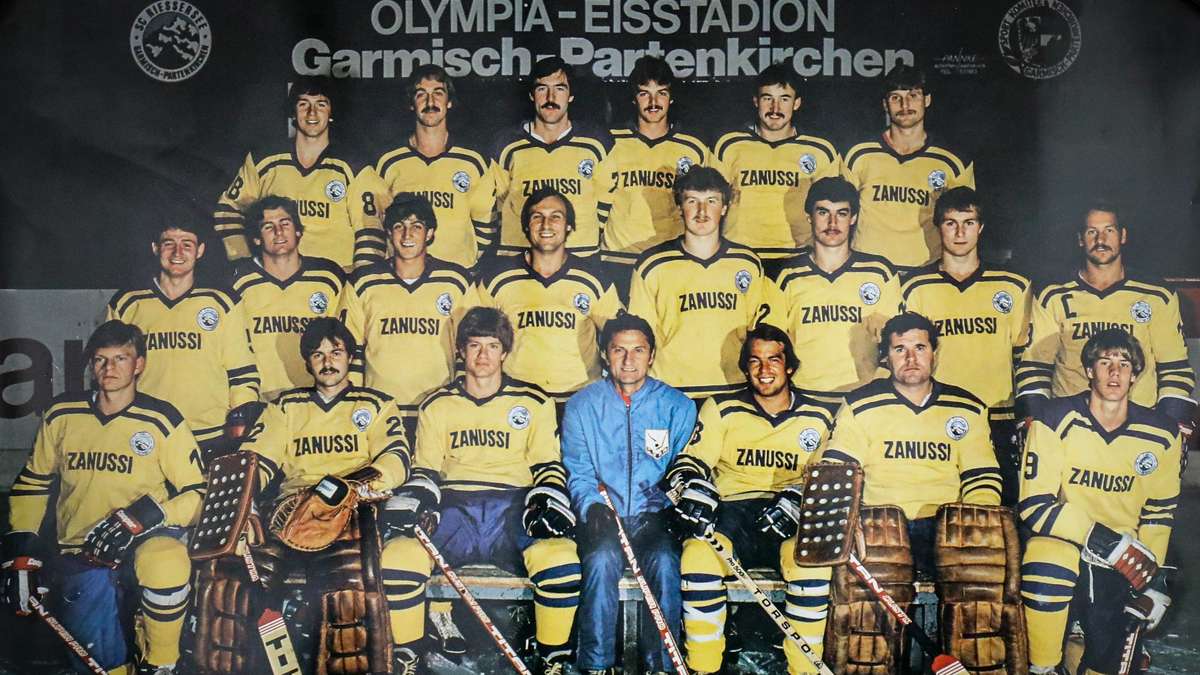Updated:
Last DM Title, Part Two – Max Fink takes a look at the first match in the Final against Düsseldorf in 1981
-
FromAndreas Mayer
Close
In the 1980/1981 season, SC Riessersee won their 10th and final ice hockey championship in Germany. Tagblatt is dedicated to this landmark title with a four-part series. In the second part, Max Fink recalls the first final match against Düsseldorfer EG.
Garmisch-Partenkirchen – March 18, 1981, Wednesday, was a normal winter day while it was still something like winter. The weather station in Zugspitze reported minus 17 degrees and nearly six meters of snow. In Sicily, Etna spat again. But the Germans found out only in the evening in Tageschau. The general situation of the weather did not give more to world politics. Oh, and at Garmisch-Partenkirchen, 9,000 people gathered on the ice rink to see what no one had seen before: the first final match of a German championship between SC Riessersee and Düsseldorfer EG, which ended in a 4-2 score for SCR.
Max Fink in 1980.
© Private / Fink
Max Fink – or as the people at Werdenfels say: Max Fink – sat in the booth with his mates. He, number 22, next to his fellow goalkeeper Vladimir D’Zurilla, number one. He doesn’t remember much about that night, but he remembers how nervous they were all. He noted that it was “tremendous tension.” And that means something when Fink says it, at that time he was 26 years old and three years ago already a goalkeeper in the title-deciding final against Cologne. The 9,000 spectators did not let goose skin sprout. In those times I was used to crowds. Well, maybe not in the preliminary round. The numbers dropped to an eerily low level, 3,000 on average, even though the team was young and good. First after the preliminary round. Fink recalls that these 9,000 visitors were likely cheated. There was more. “I don’t even want to know how many there are. Every inspector knows a little,” he says. They traveled in caravans from southern Munich in caravans. 12,000 wasn’t like 1978. “They overreacted to it.”
Max Fink, today the beard is gone.
© Andreas Mayer
The Riessersers shivered because they had the most to lose. Although many in the country praised the new format for North America, it pressured Racing Club in the run-up to the final. At worst, he would go down in history as the first preliminary round champion without a title, and nobody needed that award. “It could have been gold in your pants,” Fink says. But they had the Doctor, Jean Starcy, Jano, an ice hockey academy and Vlado D’Zurilla. Starcy was very different from his predecessor and compatriot Joshi Golonka, whom Fink calls “a pure volcano.” Under the Starse, there was no fight, rather a play. He reconfigured the pros, demanding “mental strength”, making moves, talking to his cracks all the time – and for a change of style at all levels – focused on defense, which is the key to winning the first game.
Racing by far the best defense this season and with D’Zurilla the best goalkeeper, the world champion who let down the Canadians in the 1976. Canadian Cup, as much as Fink had to “swallow” this season because he was not allowed in, he learned a lot from the Slovak. “He conveyed everything in terms of knowledge. He was an excellent character.” Of course Dzurilla was also crazy on ice. There is no other way to explain what he withdrew. During league matches, he did not wear a chestguard. To be more lean. That was how it was then. The equipment was much smaller, but the target was the same size. Put a “cardboard mask” on the head, not a mesh. To see more. “I would have been physically broken. If I was slapped, you would often have to go to the hospital.” But D’Zurilla risked that. “It was a completely different size,” the 66-year-old, who is still in the real estate business, jokes.
Fight for the disc: SCR and DEG gave each other nothing, as in this duel between Riessersee Doug Gibson (right) and Udo Kießling from Düsseldorf.
© HORSTMUELLER GmbH
The first final, the big touch, was the match against D’Zurilla and his men. Peter Geller and Pozzi Riel, the German ice hockey duo, Hans Konstanzer, who made great use of Starsey’s tactics, of course Ignaz Bernendner, the 1976. Olympic champion, Fink grew up with them, in Alestras playing street hockey, where he was the goalkeeper. “The others said he was too lazy to walk.” Fink was already standing at the gate.
After the tournament, he moved to EHC Munich in the second division, catching up more often. Standing behind D’Zurilla is “like being behind Manuel Neuer, you got the ass card,” he jokes today. After a year at EHC, he paused. Even if Fink is on the bench in the 81st Final, “You want the title, you’re in common.” In the image of the Master, he kneels next to Berndner – and near D’Zurilla, who grabbed almost everything again on March 18, 1981.
Final match, first match, March 18, 1981
SC Riessersee – Düsseldorfer EG 4: 2
Tore: 1: 0 (4.) Gibson, 2: 0 (8.) Reil, 3: 0 (13.) Diepold, 3: 1 (41.) Krueger, 3: 2 (46.) Kießling, 4: 2 (47) Rendle
Spectators: 9,000

“Internet nerd. Avid student. Zombie guru. Tv enthusiast. Coffee advocate. Social media expert. Music geek. Professional food maven. Thinker. Troublemaker.”







More Stories
Jude Bellingham and Novak Djokovic scooped huge prizes at the Laureus World Sports Awards
Challenge League: Thun beat Sion in the blockbuster promotion play-off and move within four points of Valais
New £3.6m Shooting Performance Center opens